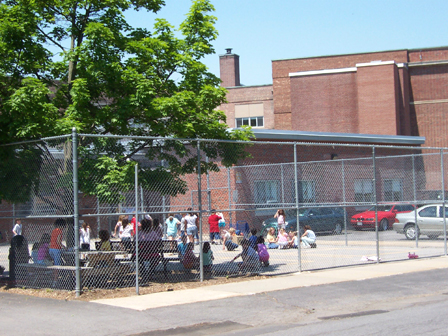(By Sintayehu Tefera, Ethiopian Politics Contributor)
At the moment, the CUD is at a crucial point in its existence. As is the case with every decision, there is a potential for a great failure or a resounding success. Uniting the country and rallying its supporters should be the number one priority. The following suggestions outlined, may have a positive effect in regards to the ongoing struggle.
1) CUD should call for the immediate release of all political prisoners, WITH a very special emphasis on MR. Siye Abrha and other EX- EPRDF members who are currently imprisoned.
2) In the event that a mass strike is needed, CUD should start the grounds work to enable people in the rural areas to participate in this strike and, in addition, implement a support system where by people that make their living paycheck to paycheck could be provided for and maintained by willing and able supporters.
3) International media has a very short attention span, by strategically utilizing supporters outside the country, CUD has to try and keep the struggle for democracy in the forefront by captivating the world’s interest.
|
|
|---|
Wednesday, October 12, 2005
Friday, October 7, 2005
Eyesore of the Month by James Howard Kunstler
Kunstler's Eyesore of the Month, June 2005 "Is it really necessary to have twelve foot chain-link fence around this [school]yard, turning the space effectively into a cage? What is the message we are sending to ourselves about our society? Do the children ever apprehend that they are being treated like caged animals?"

Wednesday, October 5, 2005
The Take: Film Review
Finally saw this last night. I thought it was quite well done.
Elements that struck me:
1. It was made apparent how political decisions from "on-high" affect regular people. This is something to which I feel we apathetic Canadians and Americans, in particular, need to pay attention. How often have you heard people say: "I'm not political. Politics doesn't affect me. I just want the government to leave me alone."? Unfortunately this apolitical attitude eventually causes problems, sometimes huge, because if we don't fight for our own interest, no one is going to do it for us. The people who were at demonstrations in The Take were from all demographics: young, old, poor, middle class, women, men, mothers, teenagers.
2. The brief mentions of IMF policies. If you have read Confessions of an Economic Hit Man (Perkins), or pretty much any critiques of globalization, you will likely be familiar with the terrible policies the IMF and the World Bank force upon countries (mass privatization, deregulation, corporate handouts to encourage foreign investment, etc.). In many ways, these policies were responsible for the economic crisis in Argentina. I would have liked a bit more analysis of a) why countries are pressured to adopt these policies, and b) specific effects of these policies. However, this was not the purpose of the documentary.
3. The real alternative not only presented, but acted upon by the workers. This is direct action, folks; to use a cliche - they took things into their own hands. It is wonderful to see democratic cooperative workplaces, decentralized yet linked by a common bond of fraternity. The individual workplaces are democratically run, with all decisions being made by vote. All workers are equitably paid (equal pay in most of the co-ops). The various workplaces seek advice from others, and come forth in solidarity to support each other in the case of police or government interference. They support, and are supported by the community. It is a small, and probably temporary, experiment of almost my EXACT political ideals. It almost brought tears to my eyes.
So, if you haven't yet seen it, Buy or Rent it now. It is well worth an hour and a half of your time.
Elements that struck me:
1. It was made apparent how political decisions from "on-high" affect regular people. This is something to which I feel we apathetic Canadians and Americans, in particular, need to pay attention. How often have you heard people say: "I'm not political. Politics doesn't affect me. I just want the government to leave me alone."? Unfortunately this apolitical attitude eventually causes problems, sometimes huge, because if we don't fight for our own interest, no one is going to do it for us. The people who were at demonstrations in The Take were from all demographics: young, old, poor, middle class, women, men, mothers, teenagers.
2. The brief mentions of IMF policies. If you have read Confessions of an Economic Hit Man (Perkins), or pretty much any critiques of globalization, you will likely be familiar with the terrible policies the IMF and the World Bank force upon countries (mass privatization, deregulation, corporate handouts to encourage foreign investment, etc.). In many ways, these policies were responsible for the economic crisis in Argentina. I would have liked a bit more analysis of a) why countries are pressured to adopt these policies, and b) specific effects of these policies. However, this was not the purpose of the documentary.
3. The real alternative not only presented, but acted upon by the workers. This is direct action, folks; to use a cliche - they took things into their own hands. It is wonderful to see democratic cooperative workplaces, decentralized yet linked by a common bond of fraternity. The individual workplaces are democratically run, with all decisions being made by vote. All workers are equitably paid (equal pay in most of the co-ops). The various workplaces seek advice from others, and come forth in solidarity to support each other in the case of police or government interference. They support, and are supported by the community. It is a small, and probably temporary, experiment of almost my EXACT political ideals. It almost brought tears to my eyes.
So, if you haven't yet seen it, Buy or Rent it now. It is well worth an hour and a half of your time.
Subscribe to:
Posts (Atom)



